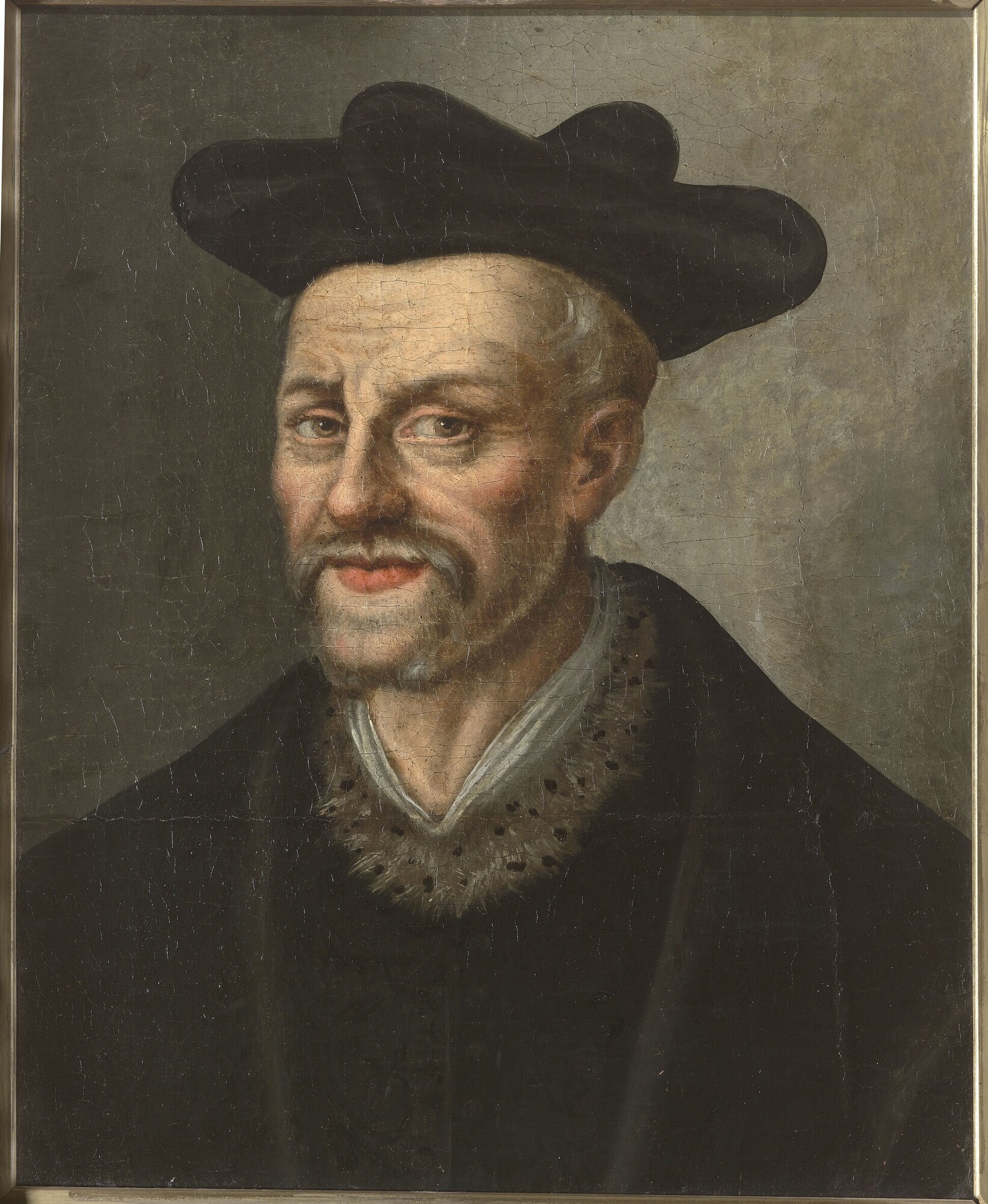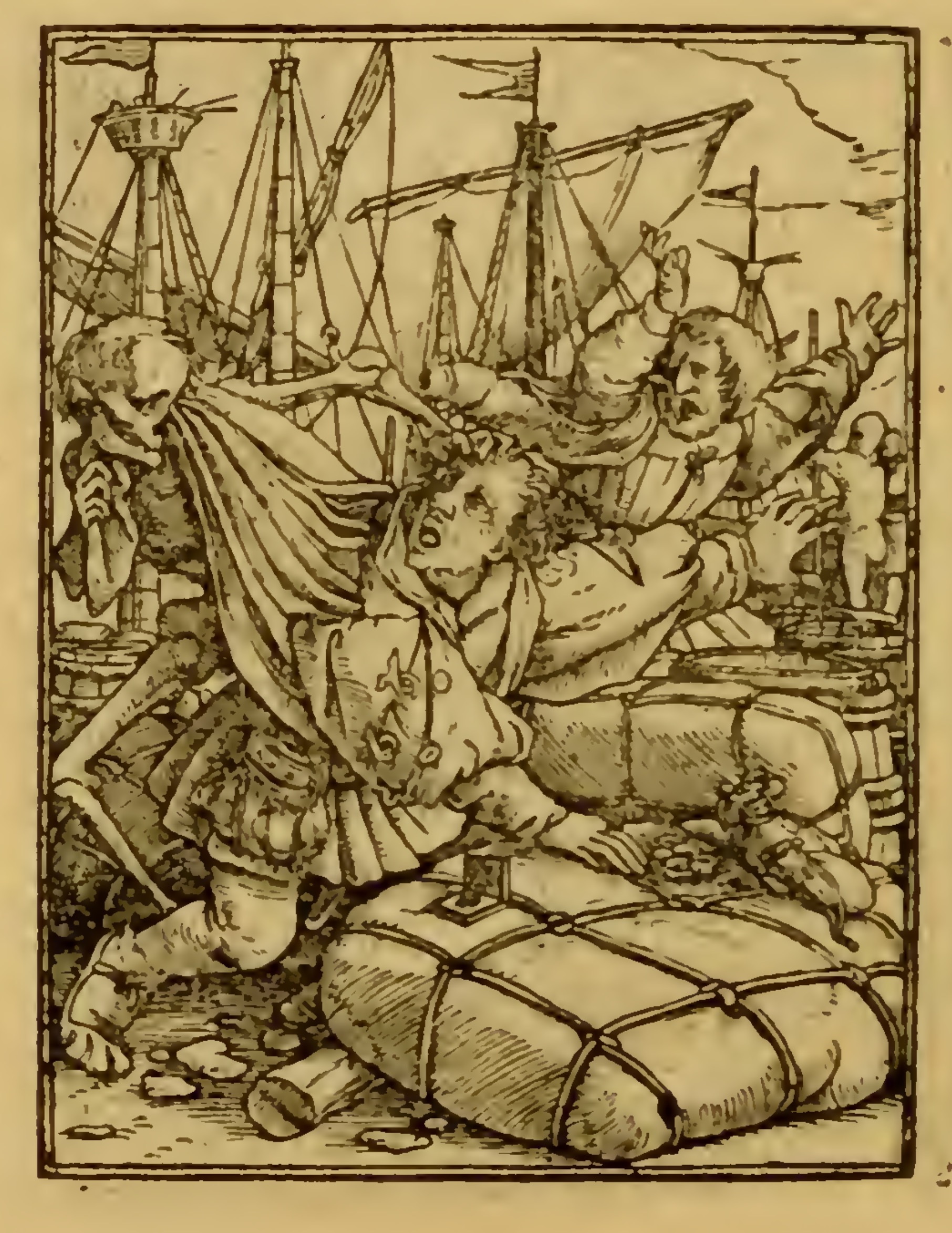See 490171
Author Archives: Swany
See 490171
The herb Pantagruelion has a small, hard, roundish root…
The herb Pantagruelion has a small, hard, roundish root, ending in a blunt white point, with few filaments, and does not sink into the earth more than a cubit.
Original French: L’herbe Pantagruelion a racine petite, durette, rõdelette, finante en poinƈte obtuſe, blãche, a peu de fillamens, & ne profonde en terre plus d’une coubtée.
Modern French: L’herbe Pantagruelion a racine petite, durette, rondelette, finante en poincte obtuse, blanche, a peu de fillamens, & ne profonde en terre plus d’une coubtée.
Notes
profonder
To sound, search, pierce, or goe deep into; to dive, or sink unto the bottom of; to press downe, or put into the deepe.
coubtée
Coubte. The elbow
strike deep
Read ne profonde, from profonder, the verb (profundare, Du Cange), a far better reading than ne est profonde (M.)
See 490148
See 490148
Among other things I saw that he had loaded great abundance of his herb
Among other things I saw that he had loaded great abundance of his herb
Original French: Entre aultres choſes ie veids qu’il feiſt charger grande foiſon de ſon herbe
Modern French: Entre aultres choses je veids qu’il feist charger grande foison de son herbe
Je veids — The elegy of Pantagruelion at the end of The Third Book is no longer from the viewpoint of Panurge, but from that of the narrator himself. A similar change occurred at the at the end of Pantagruel when Alcofrybas reentered the history during the episode in the giant’s mouth.
Notes
François Rabelais

François Rabelais
Anonymous, 17th century
Musée national du château et des Trianons, Palace of Versailles
Laid aboard

Detail of woodcut by Holbein. Death touchers a man loading a ship.
The Tempest, Act 4, Scene 1
Line 123:
Earth’s increase, foison plenty,
Barns and garners never empty,
Vines with clust’ring bunches growing,
Plants with goodly burden bowing;
Spring come to you at the farthest
In the very end of harvest.
Line 175:
All things in common nature should produce
Without sweat or endeavor; treason, felony,
Sword, pike, knife, gun, or need of any engine
Would I not have; but nature should bring forth
Of its own kind all foison, all abundance,
To feed my innocent people.
Earth’s increase, foison plenty,
Barns and garners never empty,
Foison
Foison: Store, plentie, abundance, great fullness, enough.
je veids
Le narrateur signale sa présence, au moment de louer cette plante qui réunit les vertus du chanvre et du lin. Pline n’est pas le seul à la vanter. Cœlius Rhodiginus, Antiquae Lectiones, V, 12, célèbre le lin «diuinæ rei maxime idoneum»; voir aussi Polydore Vergile, De rerum inuentoribus, III, 6.
See 490137
Fragment 490132
robbes
Au sens général de vêtements; les hommes portaient d’ailleurs des robes.
Le Tiers Livre
Pierre Michel, editor
Paris: Gallimard, 1966